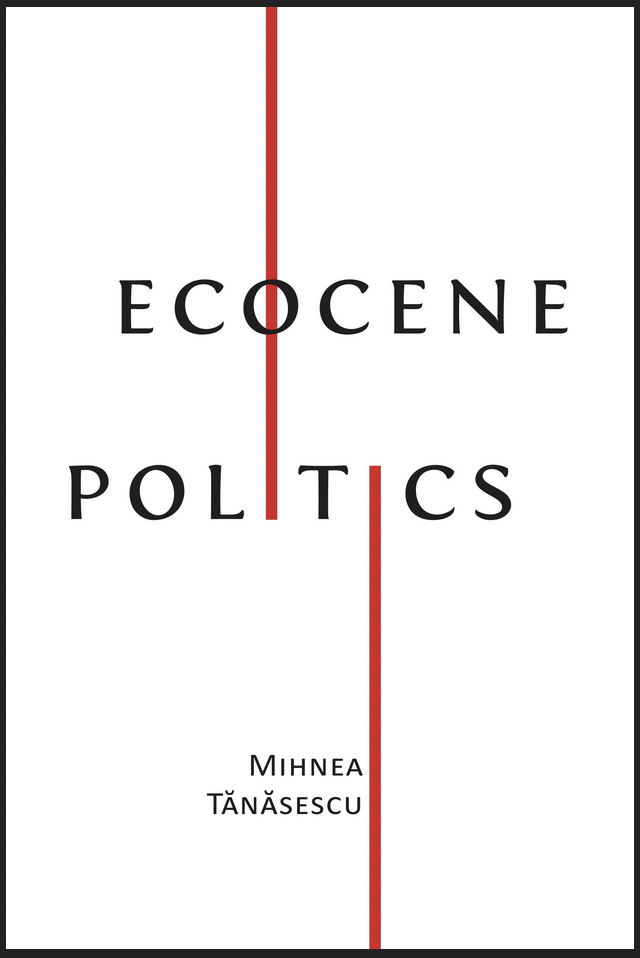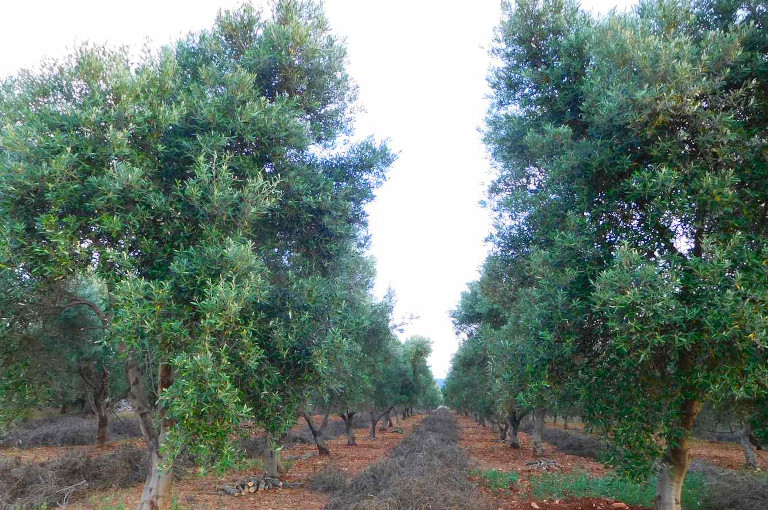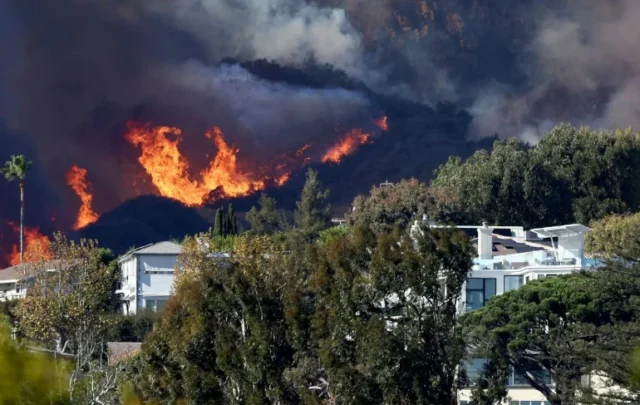We moderns are so self-important that we’ve even named a geological epoch after ourselves, the Anthropocene. Sure, human civilization has massively transformed and destabilized the planet’s ecosystems. But Anthropocene is ultimately a misleading moniker because it implies that we humans are the driving force on Earth.
How self-regarding! As a parade of wildfires, floods, droughts, and extreme heat are showing, it’s Gaia who is calling the shots. She’s making her own fierce, non-negotiable demands on us. She’s bursting the frames of order that humans have long used to shape civilization, capitalism, the state, and culture. That’s why Mihnea Tănăsescu, a brilliant Romanian-born, Belgium-based academic, urges that we instead recognize this geological era of Earth as the Ecocene.
Locked in our anthropocentric bubble, we humans have failed to see that we are deeply entangled with nature and not separate and superior to it. If humanity is to survive, it will have to learn how to get in sync with natural systems, culturally and economically, and actively contribute to the flourishing of earthly and human systems in tandem.
Hence the title of Tănăsescu’s 2022 book, Ecocene Politics. Our epoch is “characterized by the increasingly frequent intrusion of ecological processes into political life,” as the book puts it. If you can recognize this reality, it becomes clear that our politics, economy, and culture must actively learn new post-modern ways of being and doing, and adapt appropriately. That is the task ahead. Trying to shore up or restore the collapsing edifice of modernity is a fool’s errand.
Impressed by the precision and passion with which Tănăsescu addressed these issues, I spoke with him in Episode #43 of Frontiers of Commoning about his book. Tănăsescu is Research Professor of the Fund for Scientific Research at the University of Mons, Belgium, where he writes extensively about human relations with nature, drawing deeply on anthropology, sociology, politics, and law.
A key challenge that Tănăsescu tackles in Ecocene Politics is the trap of capitalist modernity – its ways of thinking and relating to the world, and how to move beyond them. His basic answer: to develop a “restorative ethics of mutualism” based on social reciprocity, responsibility, and vulnerability.
Inspired by French social philosopher Bruno Latour, Tănăsescu argues for a politics based on relationality – a theme that commoning obviously advances. The point, he argues, is to get beyond modern notions of individualism, rationality, separation from nature, and capital accumulation, and into a realm of mutualism.
How might we move in such directions? Tănăsescu proposes that we develop “renovative practices” – a term that “expresses both the necessity of radical change and the impossibility of returning to some idealized past.” To evoke the shift of perspective that humans need to develop, he tells the concrete, mundane story of pruning olive trees in Puglia, Italy.
The successful nurturing of olive trees is a complicated act of co-creation and love between humans and olive trees in very particular locations. Human culture enters into a deep relationship with what the living plant itself wants and needs. This requires attention to the larger “mosaic of landscapes and micro-climates” in the region because “every little spot is impossible to understand outside of a history of generative interaction, and outside of a familiarity with that spot.”
Because there is such a “highly complex assemblage that nurtures the health of an olive tree, the act of pruning” (the judicious, selective cutting of tree branches) is “highly ritualized,” notes Tănăsescu. It’s something done by trusted elders who understand pruning as a sacred art-form.
“One prunes for olives, but also for one’s children, for the beauty of the land, for the health of the soil, to heat oneself during winter, to make great food, for the longevity and beauty of the tree, out of a sense of duty for a land etched with mutual genealogies. Given pruning’s central role in human relationships with olive trees, it is impossible to explain it with instrumental reasoning; it resists, escapes, and overflows mere reasons, pointing towards the rich tapestry of reciprocity that can be articulated around it.”
A parable for modern times? In the traditional culture of olive tree pruning, Tănăsescu began to see how human-nature relationships had gone wrong in the modern era. He also saw, through traditional practices, how a relational ethic of reciprocity and respect for life could be cultivated at both individual and cultural levels.
For Tănăsescu, this book was a personal odyssey. While living precariously as an academic, he found himself living on unemployment benefits between one job and the uncertainties of his future. This proved to be creatively liberating. He was able to abandon a more impersonal, academic style of writing, and express his personal zeal and commitment to overcoming the limits of capitalist modernity.
“The book was not just about the ideas,” he explained, “but about a certain commitment to the difficulty of staying with the relationality of the world. You always have to unlearn ways of thinking.” For Tănăsescu, Ecocene Politics represents a bold attempt to transform our thinking about human existence, economics, culture, and politics in the face of dire ecological realities, especially climate change.
His concluding chapter on mutualism offers some practical, useful advice and many rich nuggets of insight and wisdom for commoners. Here are a few choice passages:
“Modernity…exiles people from what have always been bonds of reciprocity and responsibility…. Reciprocity as a practice has never disappeared, but rather has been drastically marginalized through the disappearance of its social infrastructure.”
“The general idea that life is fundamentally cooperative has become refracted in many different ways through the natural sciences.”
“As Margulis and Sagan express it, ‘life is free to act and has played an unexpectedly large part in its own evolution.’ This relative freedom often expresses itself in cooperative fashion.”
“Mutual beneficence plays a structuring role in the world….My argument is that mutualism can be a name for a political ethic that cannot decide, a priori, on a complete list of benefitted parties.”
“Conservation should not aim to monetize every last bit of the environment, but rather to create relationships that no longer see monetization as necessary.”
“We need infrastructures of reciprocity built through political processes committed to the living world.”
You can listen to my full interview with Mihnea Tănăsescu here. Ecocene Politics is available in a free, open access version, and also in print form from Open Book Publishers.






